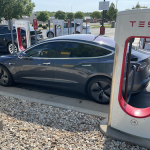![]() I have a love-hate relationship with Thanksgiving Day. On the one hand, it’s a great time of family and feasting, producing egregious amounts of food that cannot possibly be eaten; on the other hand, it serves as a good excuse to gather together with folks you couldn’t care less about for the rest of the year.
I have a love-hate relationship with Thanksgiving Day. On the one hand, it’s a great time of family and feasting, producing egregious amounts of food that cannot possibly be eaten; on the other hand, it serves as a good excuse to gather together with folks you couldn’t care less about for the rest of the year.
I also detest the symbolism of “thanksgiving,” as it was all built on a lie. That whole story about the natives helping the pilgrims and they’re getting together for a peaceful meal is total bullshit spun from wholecloth.
But that isn’t the point of this article.
I think one of the greatest problems facing American society today is a lack of empathy. It would be easy to say that everyone should just be grateful for what they have. The unfortunate truth is that the number of things to be thankful for is dwindling for wide swaths of the population.
I was reading an article today that, here in Tulsa, evictions are at an all-time high. Housing prices are rising at alarming rates and housing stock is being scooped-up by heartless corporate entities bent on maximizing shareholder equity at the expense of the people who will call said stock, “home.”
I think it is shameful that, instead of doing something to end homelessness in America, we are actually exacerbating the problem. People with actual jobs are losing their homes as they recover from the effects of the pandemic on the economy. Still others who are part of the perennially underemployed are unable to cope with rising housing and energy costs.
Let me take a moment here to segue to energy costs.
Oil and gas companies are enjoying record prices right now. Of course, you can chalk this up to good-old-American-supply-and-demand. You could even blame inflationary pressure but neither is the case. Because of the pandemic, people are driving less. They are flying less. And, when faced with the choice between eating and staying warm, it looks like food is winning.
Energy costs are rising — partially because of “supply and demand” but more so because of price gouging.
For those who are somewhat insulated from this because of income or relative wealth, this isn’t so impactful. But for the economically disadvantaged, this borders on the tragic.
Food prices are also at an all-time high. Grocery chain and food producer profits are at record levels. Commodity speculation is to blame for much of it but, again, we are seeing evidence of profiteering.
And don’t get me started on the cost of healthcare. The COVID pandemic has further exposed the insufficiencies and downright economic disparities in the healthcare system. More on that in a later article…
Some would proffer that we should be thankful for these profits; that they are a bellwether of the health of the economy. Sadly though, the health of “the economy” is happening at the expense of the most economically vulnerable.
What we are experiencing is a perfect storm of economic woe. If you’re heavily invested in stocks and commodities, these are good times for you. The problem is none of this is “trickling down.” These same companies that are making more money than ever are also reducing headcount.
This is evident of an overall dearth of empathy. People are losing their homes because they are either unemployed or underemployed, cannot afford transportation, cannot afford basic healthcare, and cannot even afford to eat.
This is essentially an undeclared war on the working poor. And, as a result, this group of people is growing at a rate following the trajectory of the growth of the super-rich.
Some would say that everyone alive should be thankful for that but I’d disagree — It sucks to be poor. It’s hard to be thankful when you’re faced with losing your home and being able to afford the goods and services essential for anything resembling a decent life.
I can say this with some certainty because I grew up poor. According to feedingamerica.org, one in six children in America live in food-insecure households. Having experienced food insecurity firsthand both keeps me humble in light of my success and gives me great empathy for people who experience what I experience.
Personally, I think the current epidemic of lack of empathy is the result of the particular brand of AmericanChristianity™ and right-wing ideology but I digress…
This brings me to the point of this article: I don’t think you can experience true gratitude without empathy. I think that it’s impossible to know what to be thankful for without understanding what it would be like to not have what you have.
Here’s the challenge, though — I think empathy for others, at least in this country, is in short supply because self-empathy is in short supply. We second-guess and judge ourselves then, subsequently, project this judgment to others. We have a collective sense of perceived internal lack that leads to an internal hoarding of our own internal resources that gets projected into our social and business decision-making.
When you see record profits in industry-verticals serving basic human needs, while the ranks of the impoverished and working-poor increase, you can see there’s a lack of empathy. Clearly those who are profiting do not understand the experience of those suffering as the result of their profiting.
Once upon a time, many of these companies were either locally-owned or had significant local presence. Because of this, there was an awareness of how business decisions affected people locally. And, in my humble opinion, this made a huge difference in how business approached consumers.
Unfortunately, businesses and investors are increasingly far away from the people they server. They are further isolated politically, as they pursue public policy that favors profit over people. American business is so obsessed with shareholder equity that they totally overlook shareholders, stewardship, and customer service. Perpetual growth is happening at the expense of the consumer.
The light at the end of this dystopian tunnel is that the unionization of workplaces is on the rise. This is a good thing because it will help the chronically underemployed gain something resembling economic parity. I think it will also put pressure on the management of American business to acknowledge they have a role to play in the long term health and well-being of society. Personally, I’m thankful for worker organization, right now.
Many of us have much to be thankful for but we must never lose sight of the fact we need empathy for those who have little to nothing to be thankful for.
Derrick Day is the author of Deconstructing Religion and the host of The Forward Podcast.
Follow him on Facebook, Instagram, Twitter, TikTok, and YouTube
















